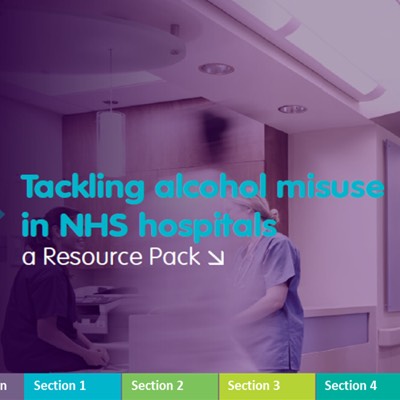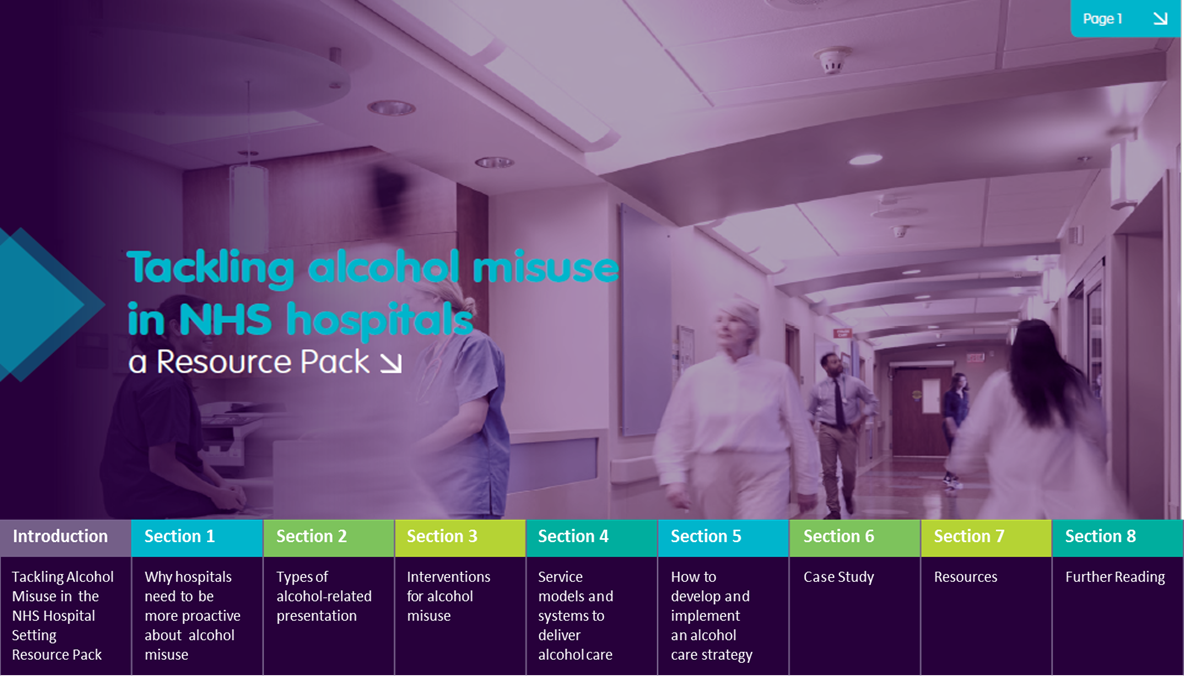Tackling Alcohol Misuse in NHS Hospitals Resource Pack

Tackling Alcohol Misuse in NHS Hospitals

Alcohol misuse places a considerable burden on the NHS and wider society. One in five adults in England drink above the Chief Medical Officer’s safe drinking guidance and 1.6 million people have alcohol dependence. Alcohol contributes to a wide range of mental and physical illness and causes significant social problems for individuals and their families. Deaths from alcoholic liver disease have increased 400% since 1970 and alcohol related hospital admissions have doubled in the eight years to 2014.
A series of reports from government and the Royal Colleges, together with a suite of recent NICE guidelines, set out the evidence based approaches to tackling alcohol related harm. Alcohol brief interventions for hazardous and harmful drinkers in primary and secondary care and specialist treatment for people with alcohol dependence have a strong evidence base and are cost effective. While some progress has been made in implementing these approaches this is not yet having sufficient impact on reversing the rising disease burden from alcohol. Less than 10% of people with alcohol dependence access alcohol treatment services each year and implementation of brief interventions remains a long way short of what has been achieved with smoking cessation interventions in the NHS.
The Health Innovation Network has worked with the CLAHRC to produce a resource pack to support commissioners and service providers to tackle the rising burden of alcohol related admissions. While hospitals are only one of several NHS settings in which wider implementation is needed, there is a particularly high concentration of people with complex alcohol related disease in hospitals, including people who have frequent alcohol related attendances. This places hospitals in a pivotal position to identify and help people with the highest level of unmet alcohol-related needs.